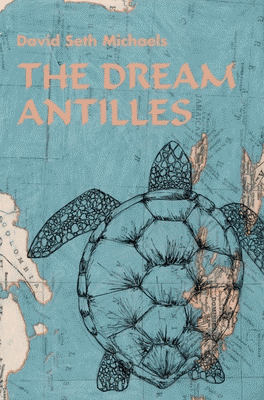Gabo, Please Don't Go!!!

It appears that my literary hero, Gabriel Garcia Marquez, has decided to stop writing. And no, I am not joking about this. I am so saddened. And disappointed. I think of Gabo's image of the woman followed by swarms of butterflies as I write this, and I wish he would give us more, much more of that. And I wish that all of his characters would continue to reveal new aspects of themselves. And that he'd tell us some new stories about Caribbean Colombia.
According to the (London) Sunday Times:
January 26, 2006
The End, by Gabriel García Márquez By Graham Keeley
The acclaimed 78-year-old author has written his final chapter, saying his heart is not in it any more
THE Nobel Prize-winning novelist, Gabriel García Márquez, has announced that he has given up writing.“I have stopped writing. Last year was the first in my life in which I haven’t written even a line,” the 78-year-old Colombian said.
“With my experience, I could write a new novel without any problems, but people would realise my heart wasn’t in it,” he told La Vanguardia, the Spanish newspaper, in a rare interview at his home in Mexico.
Often described as the father of magical realism, García Márquez is best known for One Hundred Years of Solitude, for which he was awarded the Nobel Prize for Literature in 1982, Love in the Time of Cholera, Chronicle of a Death Foretold and News of a Kidnapping.
But in recent years, García Márquez’s output has slowed considerably. He kept his fans waiting ten years for his last novel, Memories of My Melancholy Whores, which came out in 2004.
The story of a 90-year-old man who wants to celebrate his birthday by taking the virginity of a teenage girl received rave reviews. At the last minute, García Márquez tricked copyright pirates by changing the last chapter on the eve of the book’s publication.
His “creative pause” appears to put on hold indefinitely the long-awaited second part of his memoirs.
The first volume, Live to Tell It, was published in 2002 and a second edition had been expected soon afterwards.
One reason that García Márquez has written so little in recent years was thought to be his long-term fight against lymph cancer.
But now it appears the former journalist has lost his inspiration.
García Márquez rarely makes public appearances and avoids the limelight. “It is something very agreeable for a writer, but you have to keep it at arm’s length,” he said.He spoke of how he enjoyed domestic life with his wife, Mercedes Barcha, at their home, proudly showing his interviewers pictures of his family. He also owns a house in Barcelona.
Despite guarding his private life carefully, he disclosed that he received celebrity visitors such as Bill Clinton and Felipe González, the former Prime Minister of Spain. He is also friendly with Fidel Castro and has visited the Cuban leader in Havana.
He lived in Spain in the late 1960s, but left after the death of the dictator General Franco in 1975 and has never returned.
García Márquez is not the first writer to declare an end to his literary efforts.
J. D. Salinger, reclusive author of seminal novel, The Catcher in the Rye, has not published any new work for about 40 years. Harper Lee similarly withdrew from public life following the success of the Pulitzer Prize-winning To Kill a Mockingbird.
Nikolai Gogol, the 19th century Russian writer, decided while writing Dead Souls that he had to undergo a spiritual regeneration before continuing, imposing a strict regime of prayer and fasting, which led to a nervous breakdown in which he burned the entire second part of his book.
BOOKING A PLACE IN HISTORY
One Hundred Years of Solitude 1967 More than 30 million copies sold worldwide in 37 languages. It has outsold every book in Spanish except the BibleLove in the Time of Cholera 1985 Sold over a million copies in Europe and Latin America, was reported to have sold well during the ‘plague’ fears of Sars in China
Chronicle of a Death Foretold 1981 A 90-page novella that the author claims Fidel Castro helped to edit
News of a Kidnapping 1996 Published first in Colombia and Spain, creating waiting lists in Argentina that left the book sold out before it was released
Memories of My Melancholy Whores 2004 Had to be brought out early after vendors sold 13,000 illegal copies in Colombia, the home country of García Marquez. Was officially brought out with a print run of 1 million copies in Spanish
Copyright 2006 Times Newspapers Ltd.
Oh how I wish Gabo would continue! I'd like him to sit down with me in the turquoise sea off of desde Desdemona and tell me about the Buendias. I'd like to offer him a place to relax, to rediscover his inspiration, to fuel him. Anything to keep him going, anything that subverts impermanence and struggles against mortality.










